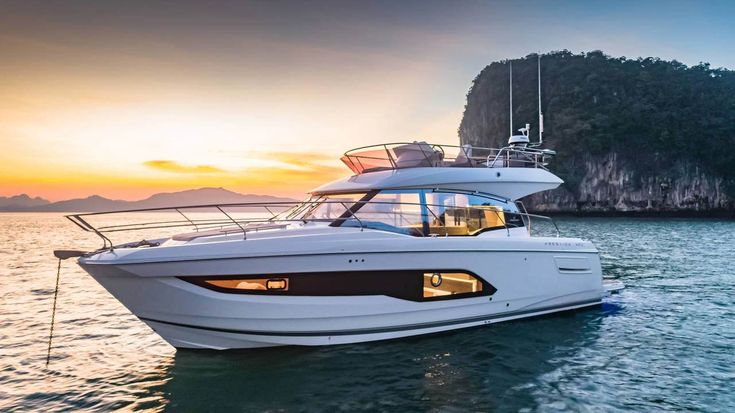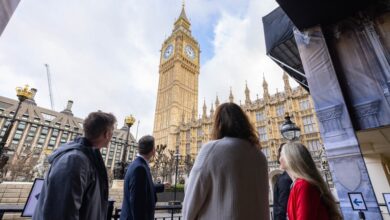Hybrid Hulls, Clear Conscience: The Rise of Eco-Friendly Private Yachts in Cancun

Why Sustainable Sailing Appeals to UK Travellers
Record spring floods and sweltering summers have nudged British holidaymakers toward lower-carbon itineraries. Flight time to Mexico’s Caribbean coast is similar to a run to South Africa, yet the pound-to-peso advantage trims overall spend by up to a third when compared with peak Mediterranean charters. Add the chance to sail under the tropical sun while lowering your footprint and the proposition becomes irresistible for travellers who want comfort without climate guilt.
How Hybrid Technology Works at Sea
Modern diesel–electric systems split propulsion duties between two engines. In harbour and at reef-speed the electric motor takes over, drawing silent power from lithium batteries. Once the skipper clears open water, diesel engages at steady optimal RPM, which is far more fuel-efficient than constant throttling. Solar arrays mounted along the flybridge trickle-charge those batteries all day, so a vessel can navigate lagoons, load tenders, or host cocktail service with the diesels switched off. Early field studies show that a single sunset charter saves roughly 40 litres of fuel compared with a conventional setup—a difference of about 105 kilograms of avoided CO₂.
Mapping the Eco Fleet
Five years ago only a handful of operators listed even partial hybrid drives. Today the marina at Puerto Juárez fields an entire row of private yachts in Cancun that boast battery banks large enough to keep air-conditioning, refrigeration, and thrusters running for hours on electrons alone. Berth counts range from intimate four-cabin catamarans to sleek twelve-guest tri-decks, and early-autumn shoulder-season rates can dip below £2 300 a night when booked sixty days out. Captains now produce weekly fuel-consumption logs, letting guests verify emission claims before signing a contract.
Greening the Experience: Sunset Cruises in Cancun With Minimal Footprint
Sundown remains the marquee moment. As the sky turns amber, the skipper kills the diesel and glides under motor-sail so quietly that you hear only rigging taps and hull whispers. Caterers serve tapas built around locally sourced lionfish ceviche, pozole shots, and tropical fruit skewers—an easy way to cut freight miles while introducing regional flavours. All drinks come in reusable steel tumblers, and kitchen waste is sorted into compostable, recyclable, and landfill streams right on deck. Biodegradable cleaners tackle the galley after dinner; by the time the boat returns to her slip, grey-water tanks have been processed through an ozone-based treatment system that meets MARPOL Annex IV standards.
Offsetting the Remaining Carbon
Even with every efficiency tweak, a transatlantic flight still produces four-plus tonnes of CO₂ per passenger. Most charter firms now bake a small mangrove-restoration fee into the booking. Mangroves sequester up to four times more carbon than terrestrial forests, and the species planted along the Yucatán coastline also buffer storm surges that threaten turtle nesting grounds. Guests receive a QR code linking to satellite images of plots their surcharge funded, an elegant way to tie personal leisure to collective stewardship.
Certification and Accountability
Blue Flag marinas audit water quality, waste handling, and safety drills; Green Boat badges certify fuel-saving hardware and document annual emissions. Independent NGOs conduct surprise inspections during high season, scoring everything from bilge filtration to crew training on marine-life etiquette. Results post publicly, so travellers can compare operators by concrete numbers rather than marketing gloss. One company, Moana, a pioneer in hybrid adoption—publishes monthly kWh-per-nautical-mile stats on its website, a transparency move that nudges the whole harbour toward higher standards.
Quick-Start Guide to Choosing a Responsible Yacht
Travellers who want to book responsibly should request three documents: the latest fuel log, the hybrid-system spec sheet, and a copy of the carbon-offset certificate. Confirm that the contract locks in a minimum electric-only runtime for harbour manoeuvres and reef approaches. Pack reef-safe sunscreen and a reusable water bottle; personal choices matter too. Finally, ask whether the crew partners with local scientists—many do—and volunteer to log reef fish or water-temperature readings during snorkel breaks. Citizen data adds value well beyond the holiday.
Charting a Net-Zero Escape
Eco-friendly private yachts in Cancun prove that luxury and sustainability no longer sail on opposite tacks. By pairing hybrid propulsion with reef-safe practices and transparent offset schemes, charter companies grant visitors the freedom to watch the sun slip behind Isla Mujeres, cocktail in hand, while keeping conscience clear. For British travellers weighing their next winter escape, a sunset cruise in Cancun aboard a hybrid hull offers both tropical warmth and the peace of mind that comes from treading lightly on the planet.



